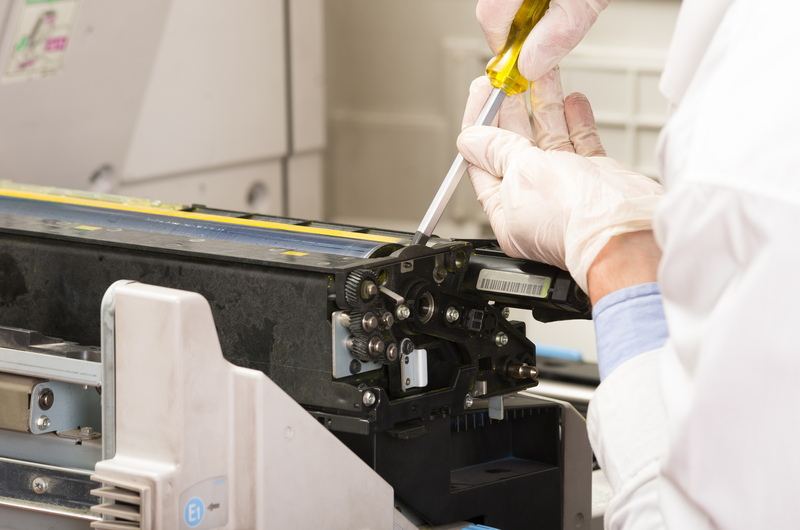Cutting-Edge Recycling for Restaurant Waste
As environmental concerns grow, the food service industry is under increasing pressure to adopt sustainable practices. Among the most effective strategies is the implementation of cutting-edge recycling methods tailored specifically for restaurant waste. With innovations in technology and a commitment to reduce their ecological footprint, restaurants are finding new ways to recycle and repurpose what was once merely trash.
The Growing Problem of Restaurant Waste
Restaurants generate a significant amount of waste, comprising food scraps, packaging, and non-recyclable materials. According to the Environmental Protection Agency (EPA), the food service sector produces millions of tons of waste annually. This not only contributes to landfill overflow but also results in lost resources and increased methane emissions from rotting food. The need for advanced recycling methods for restaurant waste has never been more critical.
Why Traditional Recycling Isn't Enough
Traditional recycling programs often focus on materials such as glass, metal, and paper. Unfortunately, these initiatives are not equipped to handle the unique waste streams from restaurants, particularly food waste. This gap necessitates the development of innovative recycling solutions tailored to the food service industry's specific needs.

Innovative Recycling Solutions for Food Waste
1. Anaerobic Digestion
Anaerobic digestion is emerging as a popular solution for managing food waste from restaurants. This process involves breaking down organic material in an oxygen-free environment, producing biogas and nutrient-rich digestate. Restaurants can use anaerobic digesters on-site to convert food waste into energy, reducing disposal costs and lowering their carbon footprint.
2. Composting Revolution
While traditional composting has been around for centuries, new advancements have made the process faster and more efficient, making it an ideal recycling method for restaurant waste. Aerated static pile composting and in-vessel composting are technological advancements that significantly speed up decomposition, allowing restaurants to turn food scraps into valuable compost quickly.
3. Food Waste Dehydrators
Food waste dehydrators are becoming an integral part of a sustainable waste management strategy for restaurants. These machines reduce the weight and volume of food waste by removing moisture, which significantly decreases waste disposal costs and the -associated environmental impacts.
- Advantages: Dehydrated food waste has a reduced odor, low risk of attracting pests, and can be used as organic fertilizer.
- Considerations: Initial investment is required for the equipment, but long-term savings and environmental benefits often justify the cost.
Repurposing Restaurant Waste into New Products
Upcycling Waste into Bioproducts
Restaurants are increasingly exploring upcycling food waste into valuable bioproducts. For instance, used cooking oil can be converted into biodiesel, and food scraps can be transformed into animal feed or ingredients for new food products. This approach not only reduces waste but also creates new revenue streams.
Partnering with Recycling Companies
Many restaurants are collaborating with specialized recycling companies that focus on food waste transformation. These partnerships enable restaurants to ensure that their waste is repurposed effectively, often providing compost or energy back to the business.

Implementing a Successful Recycling Program in Restaurants
To adopt cutting-edge recycling techniques, restaurants must first implement a comprehensive waste management strategy. Here are some essential steps:
- Conduct a waste audit: Identify the types and quantities of waste produced.
- Train staff: Educate employees about waste separation and recycling protocols.
- Invest in technology: Utilize advanced recycling solutions such as anaerobic digesters or dehydrators.
- Collaborate with partners: Work with waste management companies to enhance recycling efforts.
- Monitor and adapt: Regularly review the program's effectiveness and make necessary adjustments.
Challenges and Considerations
Implementing advanced recycling techniques in restaurants is not without challenges. Initial costs, staff training, and logistical hurdles can pose difficulties. However, the long-term benefits of reduced waste disposal costs, improved sustainability, and enhanced brand reputation often outweigh the challenges.
Conclusion
By adopting cutting-edge recycling solutions, restaurants can play a significant role in reducing the environmental impact of the food service industry. From food waste digestion to innovative composting and upcycling initiatives, the opportunities for sustainable waste management are vast and varied. As the industry evolves, those restaurants that embrace these new technologies and strategies will not only contribute to a healthier planet but also position themselves as leaders in sustainability.
Ultimately, transforming restaurant waste through innovative recycling techniques is more than an environmental obligation; it's an investment in the future of the industry itself.